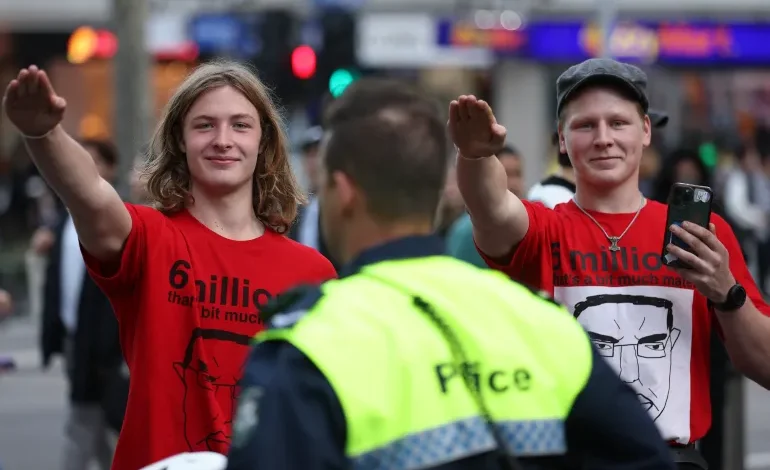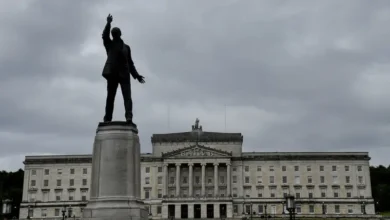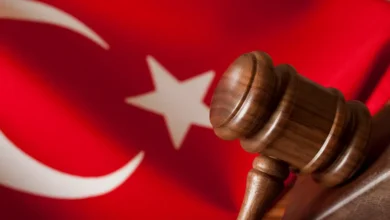Australia to ban Nazi salute, symbols in bid to curb far right

Australia plans to introduce new laws banning the public display and sale of Nazi symbols and paraphernalia as the country sees a rise in the far-right movement.
Attorney-General Mark Dreyfus said on Thursday that the government would introduce laws criminalising the display and sale of Nazi motifs, such as the swastika – one of the most recognisable symbols of Nazi propaganda – and the lightning bolt insignia of the SS (Schutzstaffel), the paramilitary wing of the Nazi party.The law will ban such symbols from use on flags, armbands or printed on clothes. A ban on the Nazi salute will also be added to federal law.
“We’ve seen, very sadly, a rise in people displaying these vile symbols, which are symbols that have no place in Australia, they should be repugnant,” Dreyfus told Australia’s Channel Seven television.
“There is no place in Australia for symbols that glorify the horrors of the Holocaust,” Dreyfus said.
“And we will no longer allow people to profit from the display and sale of items which celebrate the Nazis and their evil ideology,” he said.Australia’s spy agency has been warning that far-right groups are on the rise in Australia and that they had become more organised and visible.
In March, a group of neo-Nazis clashed with transgender rights protesters in Melbourne and members were seen raising their arms in a Nazi salute near the state parliament building.
Australian Security Intelligence Organisation director Mike Burgess last month said fringe cells of Australian neo-Nazis appeared to be growing increasingly bold, and right-wing extremists made up approximately 30 percent of the country’s counterterrorism caseload.
“In the case of the neo-Nazi groups, what we worry about is people who get drawn into that ideology,” Burgess said.
Dreyfus said all Australian states and territories had either passed laws or announced plans to ban Nazi symbols, and the proposed federal laws will mesh with state legislation.
Australia’s two most populous states – New South Wales and Victoria – have already restricted the display of Nazi symbols in public.
Those who break the proposed laws could face up to 12 months in prison, while the public display of Nazi symbols for academic, educational, artistic, literary, journalistic or scientific purposes would also be exempt.
There will also be exemptions for the religious use of swastikas, which has a spiritual significance in Hinduism, Jainism and Buddhism.
Private ownership of Nazi paraphernalia – such as collectors of historical items and war souvenirs – will not be banned, though the sale of such items for money will be prohibited, Australia’s 9News network reported.










